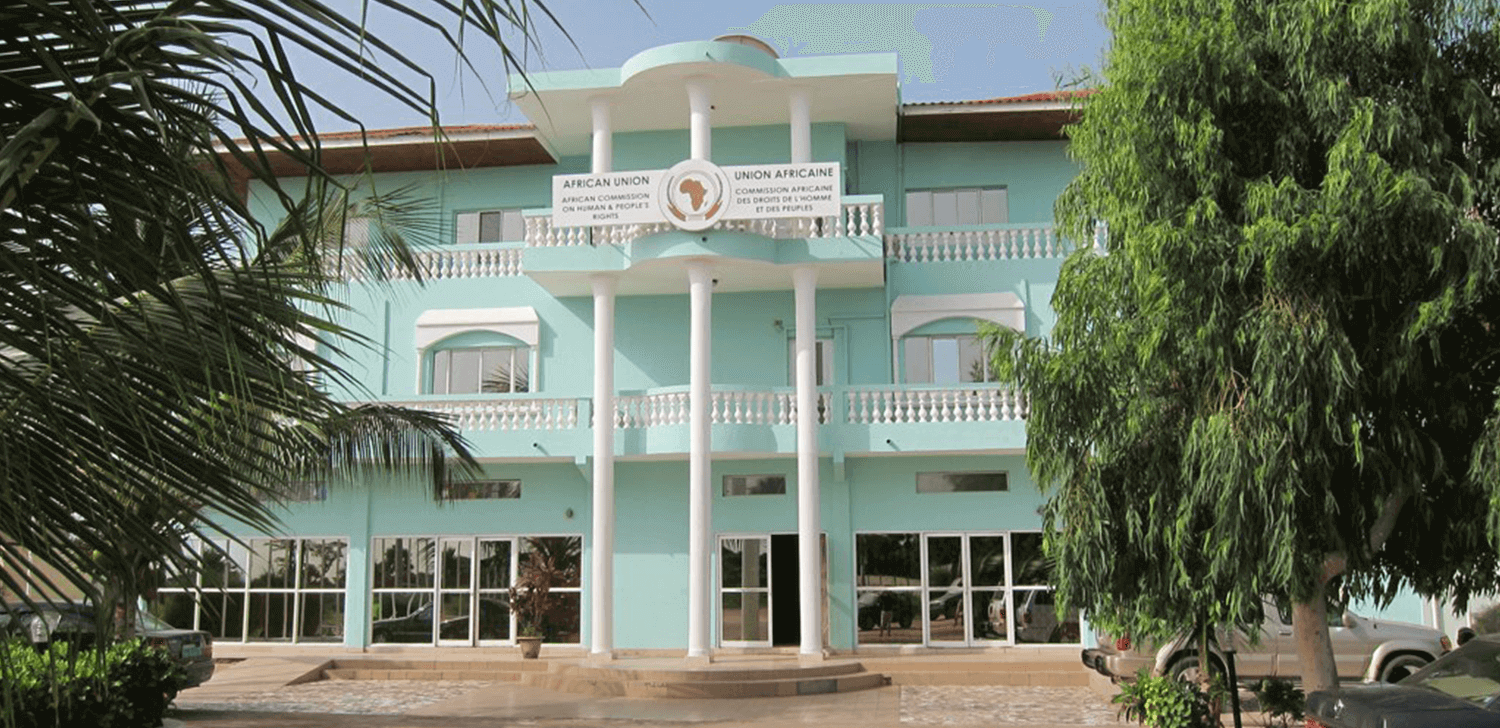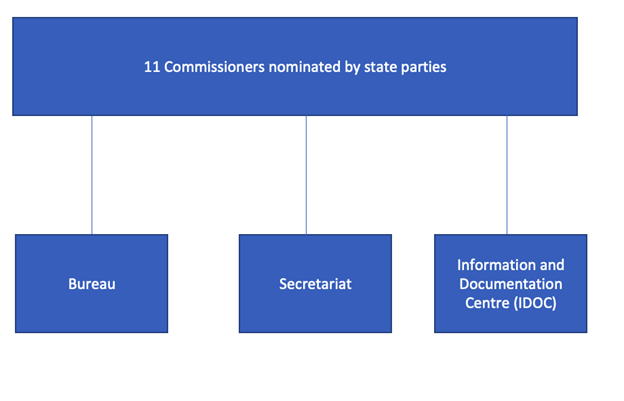The African Commission on Human and People’s Rights is a quasi-judicial institution and the main human rights body of the African Union. Let’s have a look at its history, mandate, and composition.
Watch this 8-minute animated video providing an overview of the African Commission through the story of Kouame, a Gambian citizen living in Angola.
Video animation by The Coalition for the Independence of the African Commission (CIAC)
The African Commission was established in 1981 by the African Charter on Human and People's Rights (hereinafter the ‘African Charter’, also known as the Banjul Charter) and is based in Banjul (The Gambia).
The African Commission’s mandate is to promote and protect human rights, interpret the Charter, and act as a reference for human rights in Africa. It is made up of 11 Commissioners, headed by a Chairperson. The African Charter establishes the African Commission on Human and People’s Rights as an institution of the African Union (AU). The African Commission has a number of procedures, for example the state periodic review or the communications procedure, and special mechanisms, for example the Special Rapporteur on Human Rights Defenders. Despite its important role, the African Commission faces challenges that limit its ability to ensure full compliance with the African Charter.
As of today, all States in Africa are party to the African Charter, except Morocco (54 States in total).
As a human rights defender (HRD or HRDs), the African Commission can provide many avenues to conduct your advocacy!
In the below video, Commissioner Rémy Ngoy Lumbu introduces the mandate of the African Commission.
The video features Commissioner Lumbu explaining the various aspects of the African Commission’s mandate (ACHPR)
As set out in article 45 of the African Charter, the mandate of the African Commission is divided into 4 functions:
The Bureau is made up of the Chairperson and Vice-Chairperson, who are both elected among and by the Commissioners for a two-year term and are eligible for re-election once. The bureau ensures the coordination of the activities in collaboration with the Secretariat and presents a report during ordinary sessions.
 Secretariat of the African Commission (ACHPR website)
Secretariat of the African Commission (ACHPR website)
The Secretariat is composed of an Executive Secretary and other support staff, appointed by the Chairperson of the AU Commission (10-15 persons). The Secretariat provides logistical, administrative, and technical support to the African Commission. The AU bears the costs of the African Commission and its Secretariat. The Secretariat is based in Banjul, The Gambia, and can be reached by email at [email protected].
The African Commission’s headquarters also have an Information and Documentation Centre (IDOC), which human rights defenders and other stakeholders can visit in person in Banjul for information and documentation on human rights instruments, decisions, and more.

The African Commission is, in principle, independent and impartial. Commissioners, while elected by States, serve in an individual capacity and do not represent nor report to the governments of their respective home countries. The African Commission is part of the AU system, but free from the particular influence of any one State and rules are established to ensure this impartiality (e.g. a Commissioner originating from a certain country cannot be involved in a complaint procedure related to that country).
The African Commission is the foremost expert institution on African human rights law on the continent. Commissioners are typically internationally-renowned experts in their fields, which generally includes international and African human rights law as well as the specific thematic mandates they may hold. The support staff of the African Commission also includes many legal experts.
The proceedings of the African Commission are easily accessible to human rights defenders. The African Commission receives Communications or complaints from any individual, group, or NGO, even without legal expertise; it also actively seeks to engage and work with civil society from across the continent in its proceedings. Your organisation does not need observer status (though this is an advantage) to begin engaging with the African Commission, nor do you need to be physically located in Banjul.
The African Commission produces detailed and concrete recommendations with respect to human rights in a given country, based on the African Charter and other international human rights instruments, which may be persuasive to States and provide substantive and substantial support to your cause.